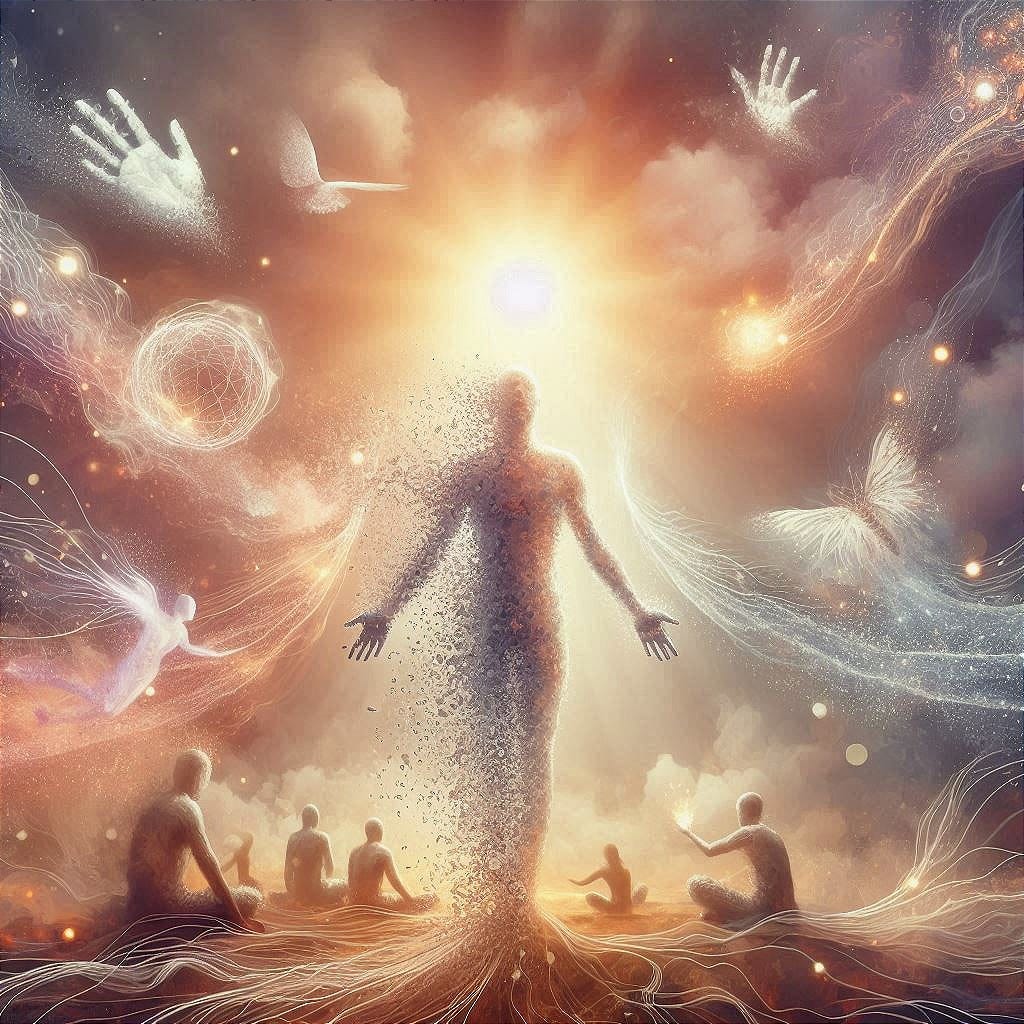The most extraordinary part of being human is our capacity for transformation.
There’s a deeper wisdom that reveals itself when we stop trying to fix everything and instead allow ourselves to be changed. While much of modern life points us inward—to analyze, to sort out, to claim our personal truth—spiritual growth whispers something different. It reminds us that who we are is not fully known in our self-understanding alone, but in our deep interdependence with others and with the Sacred.
The journey toward authenticity is good and important. It can awaken self-compassion, set boundaries, and bring healing. But if we stop there, we risk mistaking the path for the destination. The obsession with the self—my story, my trauma, my truth—can sometimes become its own form of confinement. The inner life is not meant to be a self-referential loop, but a doorway.
Freedom comes not from perfecting the self but from releasing it. Releasing the need to be right. Releasing the need to be in control. Releasing the illusion that our personal narrative is the center of meaning.
This is not about rejection of psychology or self-knowledge. It’s about seeing them as tools, not temples. Real growth asks for humility—a recognition that there is something larger than me, that grace flows through the faces of others, through love I did not earn, through mystery I cannot name.
There’s more peace when I stop defending my inner world and start participating in the greater one. This shift opens space for compassion, for justice, for a shared life that binds us to all that lives and breathes.
Let your self be a passageway, not the final place you arrive. Let Spirit carry you beyond your own edges. That’s where the real healing begins.
So many of us feel stuck in a loop of self-improvement that never quite delivers the peace it promises.
We name our wounds, talk about our childhoods, look inward for answers—and still something feels incomplete. Culture tells us this is where meaning lies: in my story, my struggle, my healing. But after a while, it starts to feel hollow, like I’m living in a hall of mirrors.
Here’s the quiet truth no one says loud enough: your healing matters, but it is not the whole story. When we focus only on the self, we risk losing sight of the bigger world we belong to. Real liberation comes not from endless introspection, but from stepping into relationship—with others, with the earth, with the Sacred presence that cannot be reduced to personal experience.
The shift is subtle but profound. We stop asking “Who am I?” and begin asking “How shall I live in relationship?” This question turns us outward. It softens the need to manage every emotion or justify every feeling. It gives us permission to show up as part of a larger movement of healing and hope, one that does not begin or end with us.
There is great beauty in admitting our dependence. It’s not weakness—it’s the doorway to grace. We were never meant to do this alone. The more we surrender the illusion of complete autonomy, the more we become free to love, serve, and participate in the healing of a world that aches for connection.
And in doing so, we find what we’ve been seeking all along—not just insight, but belonging. Not just comfort, but communion. Not just healing, but wholeness.
So take the next step—not just inward, but outward. Let your life be part of something greater. Let your healing overflow into the lives of others. Let Spirit do what you cannot do alone.
Deeper Reflection:
What does it mean to let go of personal identity as the center of meaning without losing your dignity or value?
Heart of the Message:
While psychological development emphasizes autonomy and subjective experience, spiritual growth leads to a deeper awareness of our dependence on something greater, cautioning against confusing personal narrative with ultimate truth or purpose. The psychological journey is important, but spiritual growth invites us beyond the self into dependence on grace, relationship, and shared life.
Let the self be soft.
Let the story be one chapter.
Let healing not end with “I” but flow into “we.”
There is something deeper than our wounds,
Something larger than our becoming.
The Mystery lives there—
not in the mirrors,
but in the light that passes through them.
To be free is to remember
you are not the whole,
but you belong completely.




